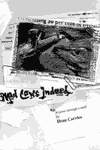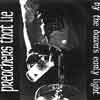Marilyn Greenwald and Joseph Bernt (editors), �The Big Chill: Investigative Reporting in the Current Media Environment�
All too often in academic writing, there are essays which quickly lose the interest of the reader because of a rigid unwavering mindset on form and structure. This form and structure pervades standard journalistic structures as well, with style guides such as the inverted pyramid, the circular lede, and �five W�s and one H� rule. But more contrite forms of writing are utilized in analysis pieces, and the worst of these has to the topic sentence.
In this essay, I will show how the topic sentence is a use of poor writing skills, catering to the basest forms of...
Oh, holy fucking Christ in a dress and matching handbag, I can�t do it. In all my years as a student, I have never used a topic sentence, even in classes with syllabi that demanded usage of topic sentences. And I got away with it, thank you, complete with honors, awards and Dean�s list nominations (which is pretty easy, seeing how I�m Dean and all). Topic sentences are for people who can�t keep their points straight and thus have to hold the reader�s hand through the essay.
This book has a lot of topic sentences.
So this collection looks into the problem of fewer investigative stories appearing in the mainstream press, brought on by pressures from advertisers, fear of lawsuits, and general laziness from reporters. Sometimes it�s a combination of these factors, but the biggest problem stems from publishers backing away from how investigative stories should work. Writing down quotes and checking alternative sources is all well and good, but in these days of media savvy corporations, there is too much manipulation of the press going on.
Consider two past investigative triumphs:
- When Upton Sinclair heard about health violations in the meat packing industry in 1905 - 1906, he got a job at a factory and witnessed the horrors first hand.
- In the late 19th century, Nellie Bly, checking into abuses in mental institutions, got herself committed and stayed as a patient for ten days.
Both stories caused uproar amongst the masses and sparked radical reform. In recent decades, some media outlets utilized these same tactics to get to the truth of a story. Consider these:
- In the late 70s, The Chicago Sun-Times investigated charges of shakedowns by city permit officials. After getting nowhere with official sources, they surreptitiously opened a bar called The Mirage, staffed entirely by reporters. They were shook down. The series that followed was nominated for the Pulitzer Prize, but was disqualified because they failed to identify themselves as reporters. It was the failure to acknowledge this series as an important work of investigative reporting that led to more shameful acts of journalistic kowtowing.
- Two of the most egregious examples came from ABC�s coverage of the Food Lion chain, and the Cincinnati Enquirer�s front page apology to Chiquita Banana. Both had uncovered massive fraud, but were sued into capitulating not because the stories were false, but because the news outlets failed to identify themselves as reporters.
What the hell? All of these examples found massive wrongdoing, witnessed by the reporters. Personally, I feel these have a much level of credibility than getting quotes from primary sources! �Hello, Mr. Food Lion person � did you unwrap meat, load it with food coloring after it had passed its expiration date, and then reseal and sell it to an unsuspecting patron? No? Well, that settles that!�
If this kind of crap continues, reporters aren�t even going to be able to work off of hunches that a source may be lying. Hell, even I have an example from personal experience.
I was working at De Anza College when the Lesbian Gay Bisexual Association held a tolerance rally in the main quad. One girl got on stage during the rally and told a tearful story of being with friends in the Mountain View area and being attacked because of their sexual preference. Through tear-stained eyes and a choked voice, she recapped how her friend had died three days later in the hospital because of these injuries. A protest march was planned.
I was moved hearing the recap of this event, and decided I was going to cover the march. I arraigned a private meeting with the speaker, who recapped the events of that fateful night.
Later, I shifted through the major media outlets for their take on the events, because as I�ve already said, reporters are lazy. But I couldn�t find a single mention of the attack. It was possible that the assault had gone by unnoticed, so my photographer partner and myself went to the area to look for eyewitnesses. After all, it happened in the bar and nightclub strip, and we loved doing assignments involving bars.
After interviewing two dozen bartenders, bouncers, and wait staff in a dozen bars, we realized that nothing happened in this area like the girl described. We dug further, checking with police and coroners in this and neighboring areas. We were fairly certain that no skirmish had transpired in this area. We went back to talk with the speaker.
This is the problem with the current stigma of investigative reporting. I was pretty sure the girl lied about what happened. I didn�t tell her that, instead only mentioning that we were having trouble finding any witnesses, and that the police had no record of an assault. If the slippery slop of identifying yourself as a reporter sinks much lower, we soon won�t even be able to do that, and we�ll be stuck asking insipid questions like, �Did you make up that story to whip the crowd up in an emotional frenzy? No? Well, that clears that up!�
The girl stuck to her story for two days, offering new leads, which I followed. All came up with no collaboration. Finally, on the day of my deadline, she took me aside and admitted she had fabricated the entire event. I spent the entire night and most of the next morning rewriting the entire story from scratch to accommodate this new angle.
The LGBA didn�t have the money to sic lawyers on us like Food Lion or Chiquita Banana, so instead they tried to work on me themselves. That entire weekend, while we worked to get the paper published, I was plagued with members trying to coerce me into not identifying the girl by name.
And their reasoning almost worked. LGBA as a group was willing to accept responsibility for the lie and it didn�t seem necessary to �out� a girl who was simply young, na�ve and over-zealous.
Finally, my advisor smacked me in the back of the head and back into reality. �Look, if there was a guy from a white supremacist organization who said they were victims of a hate crime and you found out he was lying, you would be all over yourself to put his name in the paper. She voluntarily thrust herself into the spotlight, giving her name at the meeting. Stop trying to protect people just because they�re your friends. Newspapers should have no friends.�
He was right, and not just about me having no friends. Her name went in the piece. The fallout and protests I envisioned never happened. In fact, from then on I was constantly approached by staff and students who wanted me to expose other things, even being pulled out of line at graduation by a staff member who wanted to give me some dirt on a fellow colleague.
These were people who supported the act and ideals behind investigative reporting. But when was the last time you wrote into a paper after reading a particularly good investigative story? Hell, can you remember the last investigative piece you read? And when was the last time you commented on something less benign, like say, oh, I don�t know, this blog?
Oh, that�s right. Newspapers (and reporters) should have no friends.

